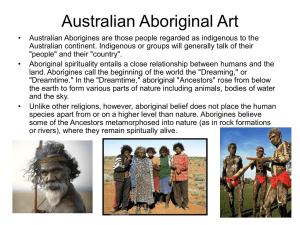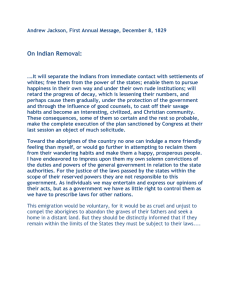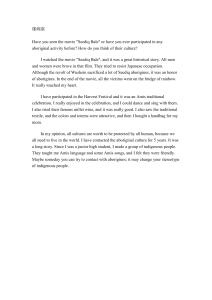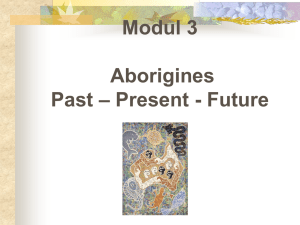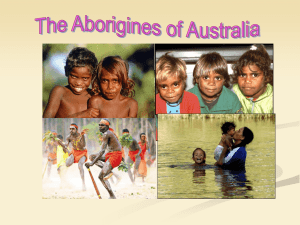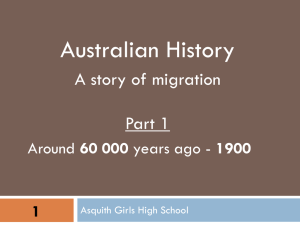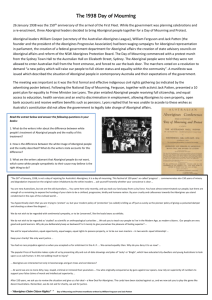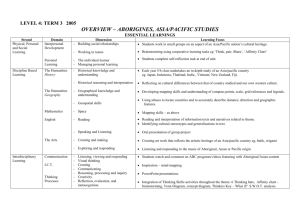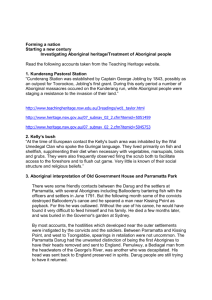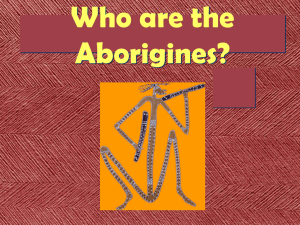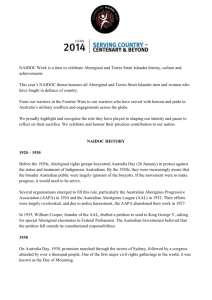Drew 8C - 17-040
advertisement
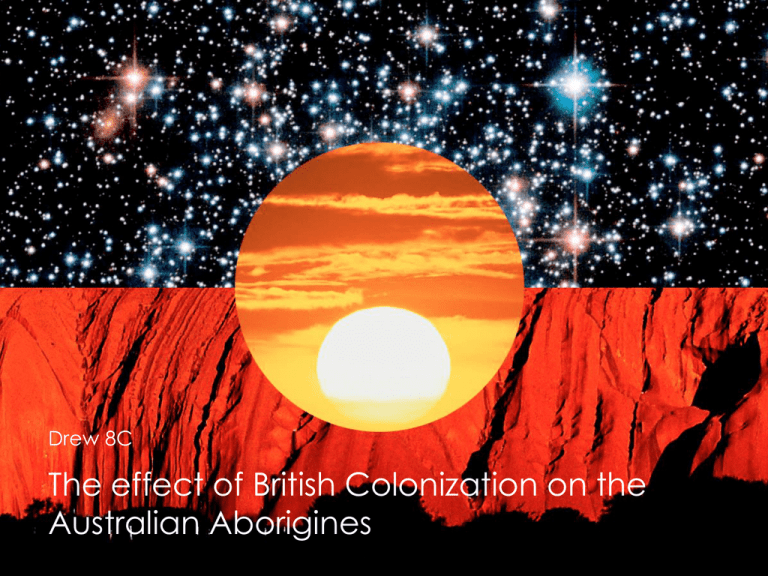
Drew 8C The effect of British Colonization on the Australian Aborigines Before colonisation, Aborigines were seminomadic, moving with the food and seasons within a certain area. They were hunter-gatherers by tradition. There was no farming. The people held the belief that they belonged to the land. They tell stories of times long gone, in a time known as Dreamtime. There was a very strong focus on family within their society. Things were friendly at first. The Indigenous people of Australia did not understand the European belief that land belongs to people, since they themselves believed the opposite. Thus, they would get shot by Europeans when they trespassed on their land. The government gave every Aboriginal legal status as a child, taking control over their lives. This affected where they could work, who they could meet, who they could marry, etc. Aborigines were forced to move into cities and towns, abandoning their beliefs and culture. Children of mixed Aboriginal/white descent could legally be taken from their families and forced to assimilate into white society to get rid of the "unwanted third race". A famous example is that of three young girls, Molly Craig, Daisy Kadibil, and their cousin Gracie Fields. They were stolen from their home at Jigalong, and brought to a re-education camp 2400 km away. They managed to escape, and Molly and Daisy return home safely. Sadly, Gracie was re-captured, and never seen again. These stolen children are known as the “Stolen Generation”. They often had a sense of not fitting in, as they never knew their own culture and never quite fit into European society either. There were large amounts of segregation. Aboriginals were often banned from going to certain establishments. Aborigines were moved into cities among non-Aboriginal Australian people. They were allowed to hold on to their culture, whilst still becoming part of the greater Australian community. This was a slight improvement, but it still did not grant enough freedom for the Aboriginals. Aborigines are given all of the same rights as other Australians, and are allowed to do as they please, practice their beliefs, speak their language, etc. They now get to live their lives how they want to, and have a say in the laws governing them. Australians signed "sorry books” apologizing for the government policies against the Aborigines. In 2000, over 300,000 Australians got together and walked across the Sydney Harbour Bridge in what was known as People Walk for Reconciliation. In 2000 Sydney Olympics opening ceremony honored the culture of the Aborigines for the whole world to see. http://fc09.deviantart.net/fs71/f/2009/36 4/4/a/Australian_Aboriginal_Flag_2_by_E mma_Constance.jpg The PowerPoints we were given in class "10th Anniversary of the Bridge Walks for Reconciliation." Reconciliation Australia Bridge Walk Anniversary. N.p., n.d. Web. 19 May 2013. Rabbit-proof Fence.
